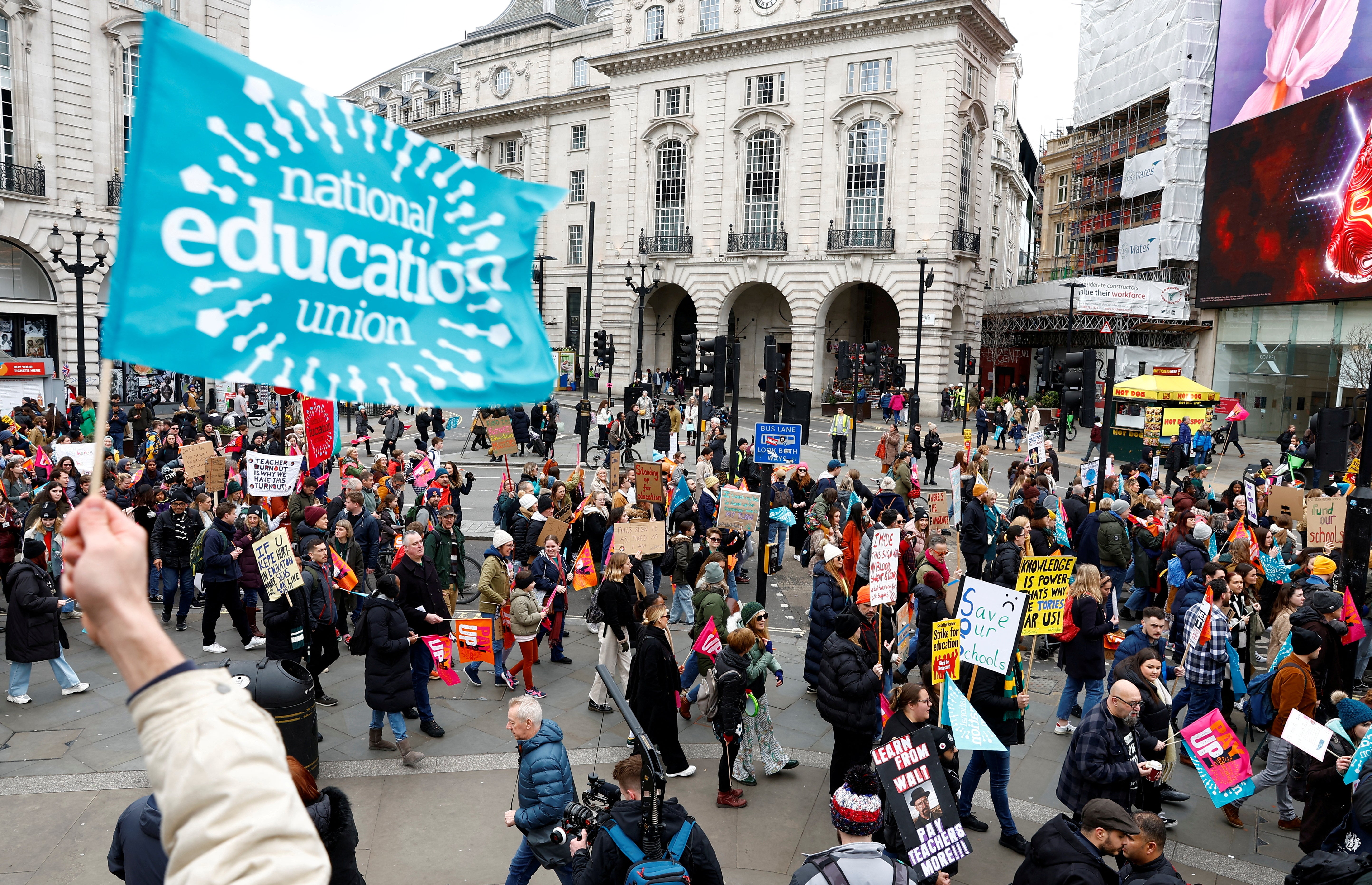Schools face more strikes after pay deal rejected by fourth union
NASUWT says pay offer ‘did not come close’ to addressing concerns about pay and conditions
Your support helps us to tell the story
From reproductive rights to climate change to Big Tech, The Independent is on the ground when the story is developing. Whether it's investigating the financials of Elon Musk's pro-Trump PAC or producing our latest documentary, 'The A Word', which shines a light on the American women fighting for reproductive rights, we know how important it is to parse out the facts from the messaging.
At such a critical moment in US history, we need reporters on the ground. Your donation allows us to keep sending journalists to speak to both sides of the story.
The Independent is trusted by Americans across the entire political spectrum. And unlike many other quality news outlets, we choose not to lock Americans out of our reporting and analysis with paywalls. We believe quality journalism should be available to everyone, paid for by those who can afford it.
Your support makes all the difference.Pupils could face yet more strike disruption this summer after a fourth teaching union rejected a government pay deal.
Teachers in England belonging to the NASUWT union will be re-balloted after 87 per cent of members turned down a one-off £1,000 payment and 4.5 per cent rise next year.
The union said the offer “did not come close” to addressing its concerns about salary and conditions.
Ministers have said more generous pay offers are not affordable and that further strikes would result in “more disruption” for children.
Schoolchildren in England and Northern Ireland already face walkouts next term following votes by several different unions.
Members of the National Education Union in England will take industrial action on Thursday 27 April and Tuesday 2 May. Five teaching unions in Northern Ireland, meanwhile, will walk out on Wednesday 26 April.
NASUWT did not reveal the turnout of the consultative ballot but said 77 per cent of members indicated they would be willing to vote for strike action.
The National Association of Head Teachers (NAHT) and the Association of School and College Leaders (ASCL) also rejected the government’s pay offer.
Dr Patrick Roach, the NASUWT general secretary, speaking at the union’s annual conference in Glasgow yesterday urged education secretary Gillian Keegan to get back around the table with unions.

He said: “Today the NASUWT is putting the secretary of state for education on notice of our intention to ballot our members for industrial action.
“The government’s pay offer failed to come close to addressing the concerns over pay and working conditions of teachers and this has rightly been rejected by our members.
“Gillian Keegan has said that she is willing to negotiate and to listen to the profession. She must now demonstrate that she means what she says by getting back around the negotiating table to find a resolution to our dispute.
“The onus is now on the government to come forward with a fully-funded pay offer that will be acceptable to the profession.”
Union chiefs have condemned the pay offer further after the UK government said the bulk of the 4.5 per cent increase should come from existing school budgets.

The Department for Education said the £1,000 one-off payment offered to teachers would be funded by additional money from government.
Schools will receive an additional £2 billion in 2023 to 2024, and in 2024 to 2025, the department added.
Many schools in England were forced to partially or fully close during strikes staged by the NEU in February and March as a result of a dispute over pay.
Educators - like many other public sector workers - have chosen to strike to address what they described as effective pay cuts over the years while dealing with ever-increasing workloads.




Join our commenting forum
Join thought-provoking conversations, follow other Independent readers and see their replies
Comments